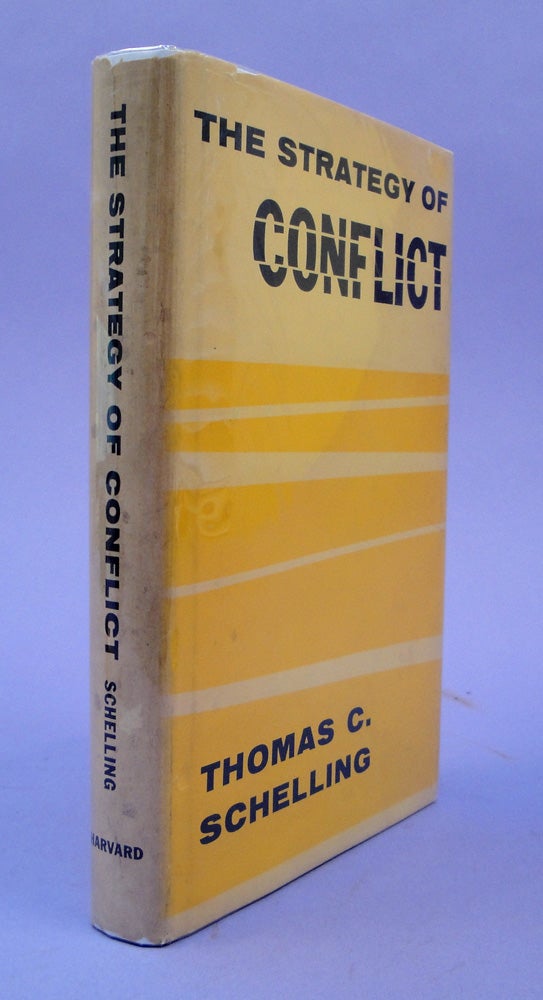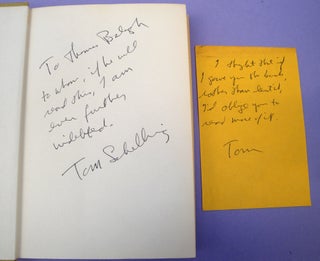The strategy of conflict.
Publisher Information: Cambridge: Harvard University Press, 1960.
"Game Theory as a Unifying Framework for the Social Sciences"--Presentation Copy of Schelling's Nobel Prize-Winning Work
Schelling, Thomas C. (1921- ). The strategy of conflict. vii, [3], 309pp. Cambridge, MA: Harvard University Press, 1960. 210 x 137 mm. Original cloth, dust-jacket (slightly chipped at head and foot). Very good copy, inscribed by Schelling to British economist Thomas Balogh (1905-85) on the front endpaper: "To Thomas Balogh to whom, if he will read this, I am even further indebted. Tom Schelling." Laid in is Schelling's signed autograph note to Balogh: "I thought that if I gave you the book, rather than lent it, I'd oblige you to read more of it. Tom."
First Edition of Schelling's most famous book, a study of bargaining and strategic behavior which pioneered the application of game theory to economics, business, warfare and other real-world situations. The Strategy of Conflict is considered one of the hundred books most influential in the West since 1945. The book introduced the concept of the "Schelling point" (also known as the focal point), defined as a point-physical or mental-that people will tend to converge on in the absence of communication, because it seems natural, special or relevant to them. In 2005 Schelling was awarded a share of the Nobel Prize in economics for his groundbreaking work in this field.
"Against the backdrop of the nuclear arms race in the late 1950s, Thomas Schelling's book The Strategy of Conflict set forth his vision of game theory as a unifying framework for the social sciences. Schelling showed that a party can strengthen its position by overtly worsening its own options, that the capability to retaliate can be more useful than the ability to resist an attack, and that uncertain retaliation is more credible and more efficient than certain retaliation. These insights have proven to be of great relevance for conflict resolution and efforts to avoid war.
"Schelling's work prompted new developments in game theory and accelerated its use and application throughout the social sciences. Notably, his analysis of strategic commitments has explained a wide range of phenomena, from the competitive strategies of firms to the delegation of political decision power" (Nobelprize.org).
Schelling presented this copy of his book to Thomas Balogh (Lord Balogh), a Hungarian-born economist who moved to England in the 1930s and taught for many years at Balliol College, Oxford and at the London School of Economics. In 1964 he was made Economic Advisor to the British Cabinet, and in 1968 he received a life peerage. He served as Britain's Minister of State for Energy from 1974 to 1977. "The Prize in Economics 2005 - Press Release". Nobelprize.org. 7 Dec 2010. Weisman, "2 Game Theorists Share a Nobel - The Boston Globe." Boston.com. 11 Oct. 2006. Web. 07 Dec. 2010.
Book Id: 41050Price: $5,000.00


